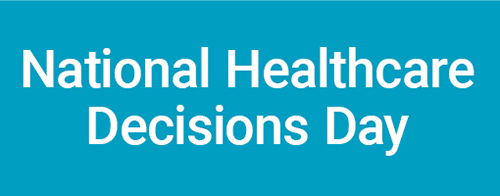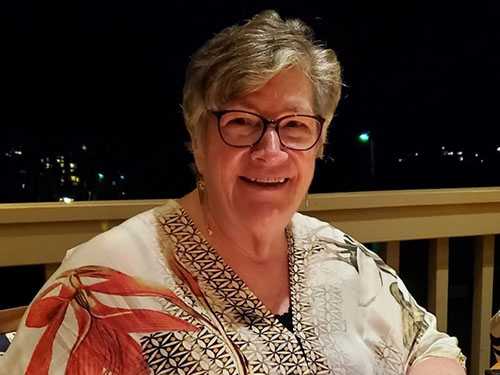How can we help?
888-283-1722
Call us now at 888-283-1722
24/7 Referrals and Nursing Support
Voices of Care Blog

Make Your Health Care Wishes Known Before It’s Too Late
Posted on April 5, 2018 by Robert Taylor, MD, FAAHPM, FAANIf you have completed a health care proxy (HCP) form that identifies the person you most trust to make those medical decisions, and have spoken with that person and your doctor about your health care wishes, you can have peace of mind.
If you haven’t completed an HCP form and have an accident or become so ill that you cannot speak or make health care decisions, doctors will not know which treatments you do and do not want. Without those instructions, the default often is to “do everything.”
Importance of having a health care proxy
In my 18 years of working in hospice and palliative medicine, I have encountered many end-of-life situations. I’d like to share two of them to illustrate the importance of having a health care proxy. (Note: all the names have been changed to preserve confidentiality.)George, an elderly widower who had been seeing an oncologist for his advanced cancer, was estranged from his children with whom he had had little contact for several years. He was close to his pastor who accompanied him to oncology appointments and helped him wrestle with difficult decisions, including a choice to be DNR (do not resuscitate) and DNI (do not intubate). George, however, never completed an HCP form naming his pastor as a surrogate decision-maker.
When George developed pneumonia, his oncologist persuaded him to rescind his DNR and DNI orders and to be intubated with the expectation that it would be temporary and he would recover from the pneumonia. While intubated, however, George suffered a massive stroke and lost the ability to make any decisions for himself. As George’s pastor was not his legal health care proxy, the hospital was forced to track down his children (his closest relatives) who took charge of medical decision-making and excluded his pastor. The children insisted that George have a tracheostomy and feeding tube placed, and that he be transferred to a nursing home – decisions that neither his pastor who knew his wishes nor any of his doctors or nurses believed he would have wanted. In this tragic case, George’s failure to complete an HCP form likely prolonged his suffering.
Compare that case with Jane’s – she was widowed and had seven grown children, including her daughter, Ellen, who primarily cared for her and knew her needs and wishes better than any of the other children. Jane had completed an HCP form that named Ellen as her proxy, so when she had a stroke and could no longer communicate, her doctors and her children knew that Ellen was the person to make medical decisions for her mother. Ellen chose to keep all her siblings informed and listened to their opinions, but when it came time to make difficult decisions, everyone, including the doctors, knew that Ellen was the person her mother had chosen to be her spokesperson and make medical decisions for her.
In the end, Ellen knew that her mother would not want to be kept alive on machines, but would prefer to be home and kept comfortable. Ellen arranged to take her mother to her home with hospice support. After about three weeks at home, during which time hospice helped keep her comfortable, Jane died peacefully, with her family around her.
Complete your advance directive
Many people choose not to think about naming a health care proxy, believing that there is no urgency or rush to do so. None of us knows what tomorrow will bring, however, and there is no time like today to complete an HCP form. If you are lucky, it will be filed away and not needed for many years or even decades; and it can be updated at any time if your situation changes. But if something unexpected happens, your family and doctors will know whom you would want to make medical decisions for you.Make your health care wishes known
Once you name your health care proxy, it’s important to have ongoing conversations with them concerning your feelings about specific medical intervention in certain circumstances. Your thinking may change over time, and that’s OK, but you need to keep your proxy informed.April 16 is National Healthcare Decisions Day, which was founded to inspire, educate and empower the public and health care providers about the importance of advance care planning. There are several online resources that will help you start the conversation with loved ones and document your health care wishes – Honoring Choices MA, Five Wishes or The Conversation Project. You can also visit CareDimensions.org/planningahead for links to these resources and more.
Additional Posts
Health Care Planning Made Simple
Posted on April 11, 2024 by Ellen DiPaola, JD in Advance Directives, Health care directivesA step-by-step process listing the important conversations and planning tools you need to get health care you want over your lifetime ...
Continue reading5 Steps to Take Charge of Your Health Care Wishes
Posted on April 12, 2023 by Mary Crowe, LICSW, ACHP-SW, C.D.S., CDP in Advance Directives, Health care directivesHere's how you can be in more control about medical treatments you would or would not want if you were unable to express your health care wishes yourself. ...
Continue readingWhy I Have a Health Care Proxy
Posted on April 13, 2022 by Mary McCormick-Gendzel in Advance Directives, Health care directivesA retired hospital nurse asks, since death is unavoidable, why not have some control over how it happens if you can? ...
Continue readingAnyone—patient, family, care provider—can make a referral. Fill in the form online or call us today.
Since 1978, Care Dimensions, formerly Hospice of the North Shore, has provided comprehensive and compassionate care for individuals and families dealing with life-threatening illnesses. As the non-profit leader in advanced illness care, we offer services in over 100 communities in Massachusetts.
Copyright 2024 | Care Dimensions, 75 Sylvan Street, Suite B-102, Danvers, MA 01923 | 888-283-1722 | 978-774-7566 |








